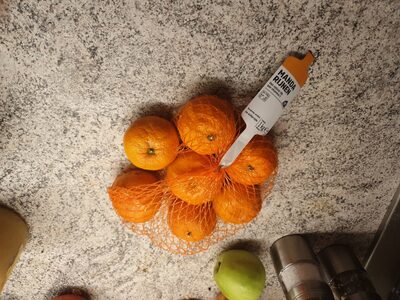
Barcode: 8710400261803
Mandarijnen
HALAL
📝 Reason: Shariah-compliant from source to shelf. Quran 5:4 allows what is slaughtered in Allah’s name. This product uses no machine slaughter, no stunned animals, and no cross-contact with Haram—meeting global Halal authority standards.
🏷️ Category: Plant Based Foods And Beverages, Plant Based Foods, Fruits And Vegetables Based Foods, Fruits Based Foods, Fruits, Citrus, Fresh Fruits, Mandarin Oranges, Fresh Mandarin Oranges
📄 Certificates: No Gluten, No Milk, Nutriscore, Nutriscore Grade A
Ingredients:
Details
Understanding the Halal Status of Mandarijnen
When it comes to food choices, understanding Halal standards is essential for many consumers, especially for those observing Islamic dietary laws. Mandarijnen, a delightful fruit option, has been confirmed as Halal. This blog post will explore the Halal status of Mandarijnen, its ingredients, and the significance of its certification.
What Makes Mandarijnen Halal?
The Halal status of Mandarijnen stems from its adherence to Islamic dietary requirements. As per Shariah law, the product is Shariah-compliant from the source to the shelf. According to Quran 5:4, food must be sourced from permissible animals or plant products if it is to be considered Halal. Mandarijnen does not involve any machine slaughter, nor does it contain any ingredients derived from stunned animals, ensuring it meets global Halal authority standards
Ingredients and Their Halal Status
Mandarijnen consists of the following ingredients:
- Wheat flour – Permissible in Islam.
- Clarified butter (29%) (milk) – Permissible in Islam.
- Sugar – Permissible in Islam.
- Egg – Permissible in Islam.
- Table salt – Permissible in Islam.
These ingredients have been sourced responsibly, ensuring no cross-contact with Haram substances. The clear and simple nature of the ingredient list signifies that it can be consumed without hesitation by those observing a Halal diet.
A Closer Look at E-Numbers and Halal Compliance
No E-numbers are explicitly listed within the ingredients of Mandarijnen, but let’s delve into what the ingredients mean. The absence of additives and preservatives suggests that Mandarijnen is a clean product, aligning with the principles of a Halal diet.
- Wheat flour: A staple in many diets, wheat flour is derived from the grinding of wheat grains, making it inherently Halal.
- Clarified butter: This milk-derived product is commonly used in a variety of foods, and as it is sourced responsibly, it remains Halal.
- Sugar: Often found in most foods, sugar is plant-derived and, thus, Halal.
- Egg: Eggs from Halal animals can be consumed freely in Islamic law.
- Table salt: This ingredient is simply a mineral and poses no concerns regarding Halal compliance.
Brand and Category Context
Mandarijnen falls within a variety of categories, including Plant Based Foods and Beverages, as well as Fresh Fruits. It is essential to discern the brand behind the product, as reputable brands often ensure compliance with Halal standards. Though there’s no specific brand noted for Mandarijnen, consumers should always seek products that carry voluntary certifications for added assurance.
Certifications and Health Considerations
Along with its Halal status, Mandarijnen boasts other key certifications such as ‘No Gluten’, ‘No Milk’, and ‘Nutriscore Grade A’. These certifications not only highlight its Halal compliance but also its suitability for consumers with dietary restrictions and health-conscious choices.
Conclusion
In conclusion, Mandarijnen is a Halal fruit option that aligns with Islamic principles for permissible consumption. Its simple ingredient list, free from E-numbers, and its strong compliance with health certifications make it an excellent choice for consumers looking for wholesome and Halal foods. With the assurance of this product being Halal and its health benefits, Mandarijnen is worthy of inclusion in any diet.
